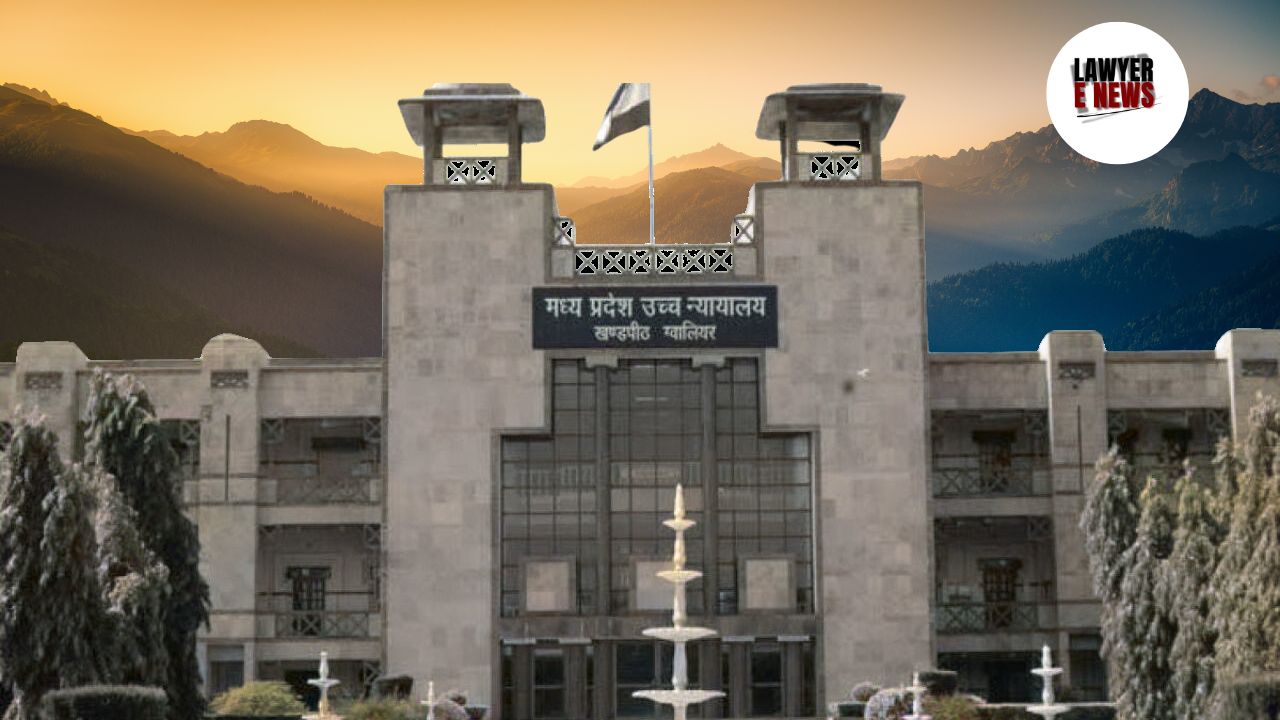-
by Admin
15 February 2026 5:35 AM



Madhya Pradesh High Court, in Pappu Sahu vs. Vinod Sahu, dismissed a petition filed under Section 482 CrPC seeking the quashing of a cheque bounce case under Section 138 of the Negotiable Instruments Act (NI Act). The court emphasized that statements recorded under Section 161 CrPC have limited evidentiary value and cannot be the sole basis for quashing proceedings under the NI Act.
The petitioner, Pappu Sahu, borrowed ₹30,000 from the respondent, Vinod Sahu, and issued a cheque dated June 13, 2022, as repayment. Upon presenting the cheque, it was dishonored by the bank. Vinod Sahu subsequently filed a complaint under Section 138 of the NI Act, resulting in proceedings before the Judicial Magistrate First Class (JMFC) Aron District, Guna.
The petitioner contended that the cheque was misused. He alleged that eight blank cheques provided to the respondent for housing loan payments were misappropriated in collusion with the bank manager, leading to unauthorized withdrawals and the dishonoring of the cheque.
The petitioner moved the High Court under Section 482 CrPC to quash the proceedings, arguing that the statements made by the respondent during a police inquiry under Section 161 CrPC demonstrated misuse of the cheques. He contended that this misuse nullified the alleged offense under Section 138 of the NI Act.
However, the respondent's counsel opposed the petition, asserting that the Negotiable Instruments Act, being a special code, overrides CrPC provisions in such cases, and the petition under Section 482 CrPC was not maintainable.
The court observed that statements recorded under Section 161 CrPC are not substantive evidence and cannot form the basis for quashing proceedings under the NI Act. Relying on precedent, the court noted that such statements could only be used to contradict prosecution witnesses and do not hold enough evidentiary value for quashing proceedings.
Justice Sunita Yadav, referencing the Supreme Court's rulings in Tathagat Export Pvt. Ltd. vs. PEC Limited and Mandvi Co-Op Bank Ltd. vs. Nimesh B. Thakore, affirmed that Sections 142 to 147 of the NI Act form a special code that overrides the general provisions of CrPC. The court ruled that Section 482 CrPC cannot be invoked to quash proceedings when substantive evidence is lacking. Additionally, the defense of cheque misuse requires a detailed examination of evidence, which cannot be undertaken in summary proceedings under Section 482 CrPC.
The High Court dismissed the petition, reaffirming that the quashing of criminal proceedings under Section 482 CrPC cannot be granted solely based on statements under Section 161 CrPC. The court emphasized that the defense of cheque misuse must be adjudicated during the trial.
Date of Decision: September 24, 2024
Pappu Sahu vs. Vinod Sahu.
